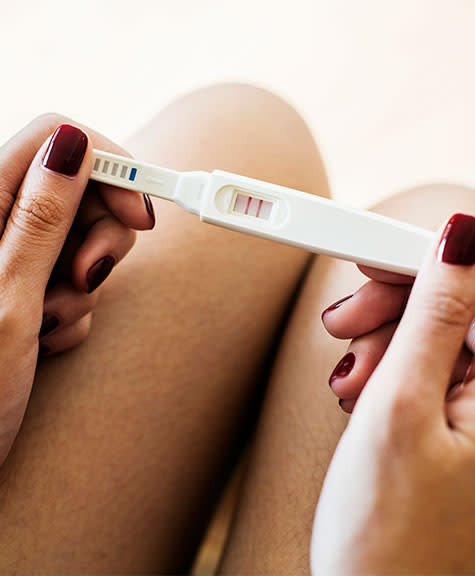Being an expectant mother is such a joy irrespective of when your pregnancy started and which season it is bound to continue through. Summer pregnancies can bring a lot of excitement, but they also come with unique challenges.
Of course, every season of the year has its fair share of perks and disadvantages. However, the combination of heat, humidity, and physical demands of pregnancy can make the summers particularly challenging for expectant mothers.
This is not to disregard the joys of light clothing, trips to the beach and ice-cold drinks by the pool. But, there are many measures that expectant mothers must take in order to have a safe and healthy pregnancy, devoid of medical complications.
To ensure the health and well-being of both mother and baby, it’s important to follow practical tips, care methods and wellness techniques for a healthy summer pregnancy. In the following article, we will discuss potential risks associated with hot weather and how they may affect you as a pregnant mom or your baby.
Challenges of Summer Pregnancies
Pregnancy during the summer months can be particularly tough due to increased heat and humidity. As an expectant mother, you need to be extra cautious to avoid dehydration, sunburn, and overheating, all of which can pose risks to both you and your baby.
Some of the most common and prevalent challenges of the summer season for pregnant mothers are:
- Heat
- Humidity
- Dehydration
- Sun exposure
- Physical discomfort
There are many measures you can take to avoid the negative effects of these factors.
Tips to Ensure a Healthy Summer Pregnancy
Navigating a pregnancy during the summer months can be challenging due to the increased heat, humidity, and physical demands. However, with the right precautions and lifestyle adjustments, expectant mothers can enjoy a healthy and comfortable pregnancy.
Here are some essential tips that will help you stay healthy and manage the unique challenges of a summer pregnancy.
Stay Hydrated
Hydration is crucial during pregnancy, especially in the summer months. Proper hydration supports increased blood volume, helps in the development of the amniotic fluid, and aids in nutrient transport to your baby.
Without proper hydration, complications can arise including but not limited to headaches, dizziness, and even preterm labor.
Some tips for staying hydrated are:
- Drink Water Regularly: Aim for at least 8-10 glasses of water a day, and increase this amount if you’re particularly active or it’s especially hot outside.
- Eat Hydrating Foods: Incorporate water-rich foods into your diet, such as watermelon, cucumbers, oranges, and strawberries.
- Monitor Urine Color: Keep an eye on the color of your urine; it should be light yellow. Darker urine is a sign that you need to drink more fluids.
- Carry a Water Bottle: Always have a water bottle with you to ensure you can hydrate throughout the day.
- Avoid Caffeinated Drinks: Limit consumption of caffeine as it can contribute to dehydration.
- Monitor Symptoms: Be aware of the signs of dehydration, including dark urine, dizziness, dry mouth, and infrequent urination, and take steps to rehydrate promptly.
Some of the potential effects of dehydration on a fetus include:
- Reduced Amniotic Fluid: Adequate levels of amniotic fluid are crucial for your baby’s movement and development. Low amniotic fluid (oligohydramnios) can restrict fetal movements and affect muscle and bone development.
- Lung Development: Amniotic fluid is essential for the development of your baby’s lungs. Reduced fluid levels can impair lung development, potentially leading to respiratory issues after birth.
- Preterm Labor: Dehydration can cause uterine contractions, which might lead to preterm labor which increases the risk of complications for your baby, including underdeveloped organs and other health issues.
- Neural Tube Defects: Without proper hydration, the absorption of essential nutrients is hindered, including folic acid. This increases the risk of neural tube defects such as spina bifida.
- Restricted Blood Flow: Dehydration can reduce blood volume, limiting the flow of oxygen and essential nutrients to the fetus which affects fetal growth and development, potentially leading to intrauterine growth restriction (IUGR).
- Increased Risk of Birth Defects: Chronic dehydration can affect your baby’s overall development, increasing the risk of congenital disabilities.
- Decreased Placental Function: The placenta relies on adequate blood flow to function properly and dehydration can impair placental function, affecting the exchange of nutrients and waste between mother and baby.
- Miscarriage: In extreme cases, severe dehydration can increase the risk of miscarriage, particularly in the early stages of pregnancy.
- Maternal Complications: Dehydration can lead to maternal health issues such as urinary tract infections (UTIs), kidney stones, and constipation which can indirectly affect fetal health and development.
ALSO READ: 5 Simple Morning Sickness Remedies
Avoid Overheating
During pregnancy, your body undergoes numerous physiological changes, one of which is an increase in metabolic rate. This means your body generates more heat than usual, making you more susceptible to overheating, especially in the summer months. Elevated body temperature can be dangerous for both mother and the fetus.
Overheating, or hyperthermia, can occur when the body’s temperature regulation mechanisms are overwhelmed, leading to potentially serious health risks. That is why maintaining a normal body temperature is crucial to ensure your well-being as well as that of your baby.
You should take extra precautions to avoid overheating, as high temperatures can cause dehydration, heat exhaustion, or even heat stroke.
Some of the ways you can regulate your body’s temperature during pregnancy and avoid overheating include:
- Stay Indoors During Peak Heat: The sun is strongest between 10 a.m. and 4 p.m. Try to stay indoors during these hours to avoid the extreme heat.
- Wear Appropriate Clothing: Choose loose-fitting, light-colored clothing made of breathable fabrics like cotton to help your body stay cool.
- Use Fans and Air Conditioning: Ensure your living spaces are well-ventilated and cool. Fans, air conditioning, or even a cool damp cloth can help reduce your body temperature.
- Take Cool Showers or Baths: A quick cool shower or bath can help lower your body temperature and provide relief from the heat.
- Stay in the Shade: When outdoors, seek shaded areas or use a wide-brimmed hat and parasol to protect yourself from direct sunlight.
- Hydrate Frequently: Drink plenty of water throughout the day to stay hydrated and help regulate your body temperature.
- Use Cooling Towels: Carry a damp, cool towel to place on your neck or forehead when feeling overheated.
The medical complexities for your baby that may arise due to overheating include:
- Neural Tube Defects: Elevated body temperatures in early pregnancy have been associated with an increased risk of neural tube defects, such as spina bifida.
- Heat Stress: Prolonged exposure to high temperatures can lead to fetal heat stress, potentially affecting fetal development and growth.
- Dehydration Risks: Overheating can lead to dehydration, which reduces amniotic fluid levels and can impact fetal development.
- Preterm Labor: Severe overheating may increase the risk of preterm labor or other complications during pregnancy.
- Low Birth Weight: Babies born to mothers who experience significant overheating may be at risk of low birth weight due to potential disruptions in nutrient supply and oxygen flow.
By taking the correct measures to stay cool and monitoring your body temperature, you can help ensure a safer and healthier environment for yourself and your baby.
Monitor Physical Activity
Physical activity is very beneficial and offers numerous health advantages such as improved mood, increased energy levels, and better sleep. However, during the summer months, it’s essential to adjust exercise routines to prevent overheating and dehydration.
As a pregnant mama, you should be mindful of your body’s signals and prioritize activities that are safe and comfortable in the warmer weather. Be careful of overexertion and exposure to high temperatures as that can pose risks to you and your developing fetus. It is crucial to strike a balance between staying active and staying cool.
Safe Exercise Practices For Summer Pregnancy
- Choose Cooler Times: Exercise in the early morning or late evening when temperatures are cooler.
- Indoor Workouts: Engage in indoor activities such as prenatal yoga, swimming, or using a treadmill in an air-conditioned environment.
- Stay Hydrated: Drink water before, during, and after exercise to maintain hydration levels.
- Light Clothing: Wear lightweight, breathable clothing to help regulate body temperature.
- Low-Impact Activities: Focus on low-impact exercises like walking, swimming, or prenatal yoga, which are gentle on the body and less likely to cause overheating.
It is very important to take frequent breaks and rest properly.
- Frequent Breaks: Take regular breaks during exercise to cool down and hydrate.
- Listen to Your Body: Pay attention to your body’s signals. If you feel dizzy, faint, or overly tired, stop and rest.
- Elevate Feet: Rest with your feet elevated to reduce swelling and improve circulation.
ALSO READ: 10 Common Pregnancy Discomforts and How to Manage Them
Maintain a Balanced Diet
We are all very familiar with the importance of maintaining a balanced diet. A nutritious diet ensures that the mother receives the essential vitamins, minerals, and nutrients needed to support fetal growth and development.
During summer, the increased heat and humidity can impact appetite and hydration, making it even more important to focus on healthy, balanced eating habits. With proper nutrition, you can prevent complications and promote a healthy pregnancy.
A nutritious and balanced diet assists your pregnancy in:
- Fetal Development: Essential nutrients like folic acid, iron, calcium, and DHA support the development of the baby’s brain, bones, and organs.
- Energy Levels: A balanced diet provides the energy needed to cope with the physical demands of pregnancy.
- Immune System Support: Nutrient-rich foods strengthen the immune system, helping to prevent infections and illnesses.
- Weight Management: Proper nutrition helps manage healthy weight gain, reducing the risk of gestational diabetes and preeclampsia.
- Hydration: Eating hydrating foods helps maintain fluid balance, which is especially important during the hot summer months.
A few tips to follow that can assist in maintaining a balanced diet include:
- Small, Frequent Meals: Eat smaller, more frequent meals to maintain energy levels and manage nausea or heartburn.
- Cool Meals: Choose cool meals like salads, smoothies, and chilled soups to avoid feeling overheated.
- Balanced Plate: Ensure each meal includes a balance of proteins, healthy fats, whole grains, and plenty of fruits and vegetables.
- Healthy Snacks: Keep healthy snacks on hand, such as nuts, yogurt, and fresh fruit, to curb hunger and maintain energy levels.
- Limit Sugary and Processed Foods: Reduce the intake of sugary drinks and processed foods, which can lead to energy crashes and unnecessary weight gain.
ALSO READ: 10 Best Pregnancy Foods For High Intelligence Babies
The negative effects associated with poor nutrition are vast and various. Without proper nutritious intake, your baby could have:
- Growth Restrictions: Inadequate nutrition can lead to intrauterine growth restriction (IUGR), affecting your baby’s size and development.
- Birth Defects: A lack of essential nutrients, such as folic acid, can increase the risk of neural tube defects and other birth abnormalities.
- Low Birth Weight: Poor maternal nutrition is a significant factor in low birth weight, which can lead to health complications for your newborn.
- Premature Birth: Nutrient deficiencies can contribute to preterm labor and delivery, posing risks to your baby’s health and development.
- Developmental Issues: Insufficient intake of critical nutrients like iron and omega-3 fatty acids can impact brain development and cognitive function.
- Maternal Health Risks: Poor nutrition can also affect the mother’s health, leading to complications such as anemia, gestational diabetes, and hypertension, which can, in turn, impact the fetus.
Practice Sun Safety
Practicing sun safety is so important for a mama to-be. This is especially more important during the summer months when the sun’s rays are strongest. You are more susceptible to overheating and sunburn due to increased skin sensitivity and hormonal changes.
Protecting your skin from harmful UV rays not only prevents discomfort but also reduces the risk of skin damage and other complications. By taking appropriate sun safety measures, you can enjoy the outdoors while ensuring your and your baby’s well-being.
Some tips to follow are:
- Sunscreen: Use a broad-spectrum sunscreen with at least SPF 50. Apply it generously on all exposed skin, and reapply every two hours or immediately after swimming or sweating.
- Seek Shade: Stay in the shade as much as possible, especially during peak sun hours from 10 a.m. to 4 p.m.
- Wear a Hat: Wear a wide-brimmed hat to protect your face, neck, and ears from direct sunlight.
- Sunglasses: Use sunglasses that provide 100% UV protection to shield your eyes from harmful rays and reduce the risk of cataracts.
- Protective Clothing: Wear long-sleeved shirts, long pants, and skirts made from tightly woven fabrics. Some clothing even comes with built-in UV protection.
- Avoid Tanning Beds: Steer clear of tanning beds, which can increase the risk of skin cancer and other skin damage.
ALSO READ: How To Prepare For A Baby – A Complete Guide
Attend Regular Prenatal Checkups
Let’s not forget to attend regular prenatal checkups throughout the pregnancy. Not only is it important for your baby’s health, but it is also very important for your health, mama. This will allow your healthcare provider to detect potential issues early and provide necessary interventions.
During the summer, specific concerns related to heat and sun exposure can be addressed, ensuring a healthy pregnancy. Staying on top of your prenatal visits helps in maintaining optimal health and catching any complications early.
With regular prenatal appointments, you can:
- Monitoring Development: Keep track of your baby’s growth and development, ensuring everything is progressing normally.
- Maternal Health Assessments: Monitor your health, including blood pressure, weight, and overall well-being.
- Early Detection: Routine tests and screenings to detect potential issues early, allowing for timely interventions.
- Personalized Advice: Get personalized advice on managing summer-related pregnancy concerns, such as staying hydrated and avoiding heat stress.
- Reassurance: Get reassurance and peace of mind, helping reduce anxiety about your pregnancy.
Avoid Crowded Places
Avoiding crowded places is especially important in the summers to avoid instances of overheating and poor ventilation that can increase health risks. Crowded areas increase your risk of exposure to illnesses and can also be physically taxing due to limited space and resources. Try to steer clear of crowded places and prioritize cool, quiet spaces to relax. This helps maintain comfort and reduces the risk of complications.
Some of the risks for pregnant mothers associated with crowded spaces are:
- Exposure to Illness: Crowded places increase the risk of exposure to contagious diseases, which can be harmful to both the mother and the baby.
- Heat Stress: Poorly ventilated areas can lead to overheating, which is dangerous during pregnancy.
- Physical Strain: Navigating through crowds can be physically exhausting and stressful, especially for pregnant women.
- Limited Access to Amenities: Crowded places often have limited seating and restrooms, making it difficult to find comfort and relief when needed.
The negative impact that crowded spaces can have on your fetus include:
- Increased Risk of Infection: Exposure to infectious diseases in crowded places can pose serious risks to your baby, including potential developmental issues.
- Stress and Anxiety: High-stress environments can negatively impact your health, which in turn affects your baby’s well-being.
- Overheating: Prolonged exposure to poorly ventilated, crowded areas can lead to overheating, increasing the risk of heat stress and related complications.
- Physical Discomfort: Physical strain and discomfort from being in crowded places can lead to fatigue and exacerbate pregnancy-related symptoms.
Being an expectant mother is a joyous experience, regardless of when your pregnancy began or which season it spans. Summer pregnancies, with their unique mix of excitement and challenges, require extra attention to ensure both the mother’s and baby’s well-being.
By following practical tips and taking proactive measures, you can enjoy the many pleasures of summer while maintaining a healthy pregnancy. Remember, each season brings its own set of perks and challenges. With the right precautions, you can embrace the joys of a summer pregnancy while safeguarding your health and that of your baby. By staying informed and proactive, you can navigate a summer pregnancy with confidence and ease.
References: American Pregnancy Association, NIH, Centers for Disease Control and Prevention, WebMD, Mayo Clinic, March of Dimes, American College of Obstetricians and Gynecologists









